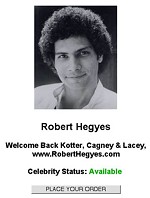Magnolia
Reviewed by Sarah Hepola, Fri., Aug. 4, 2000

MAGNOLIA
D: Paul Thomas Anderson; with Jason Robards, Philip Seymour Hoffman, John C. Reilly, Phillip Baker Hall, William H. Macy, Melinda Dillon, Jeremy Blackman, Tom Cruise, Julianne Moore, Melora Walters.A strange coincidence, but these things do happen. It had not been 24 hours since I'd watched Magnolia once again that I found myself on the phone with my mother trying to explain it.
"Your father and I watched Magnolia last night."
I sucked in my breath. For a variety of reasons, I would not recommend Magnolia to my parents -- at least not without reservation -- and I was taken aback by the notion that they had picked it out. (Of course my mother chooses films like I choose bottles of wine -- part misremembered recommendations and part pretty pictures.) But for whatever reason, they had stumbled into this phenomenal film -- knowing nothing of its reputation or its director's pedigree.
"What did you think of it?" I asked, unable to disguise the anticipation in my voice, the itchy eagerness of a kid who thinks they have the right answer and can't wait to be called on.
She exhaled one of those creaky sighs of consideration. "It was interesting. I liked it."
"But ... " I offered.
"But what does it mean?"
All things considered, a valid question.
Truth is, Magnolia -- at three hours -- is about 170 minutes of pure sense-making film. What's not to understand in these simple stories of children and parents, of death and dying, of crime and punishment? It's not performance art, for chrissakes, and I've read menus that were harder to crack than the basic truths batted about in Paul Thomas Anderson's third film. ("Dad, you need to be nicer to me," one character tells another. "What do we forgive?" asks the film's closing monologue.) No, my mother was referring to something very specific -- all told, about five minutes of celluloid, less than 3% of the movie -- that had simply flummoxed her, had, as my mom would say, "blown her out of the water." If you know a little bit about Magnolia, I'll bet you can guess what that was.
And my mother is not the only person confused about the movie, audacious and indulgent as that crucial 3% is. When the film was released last December, it was hailed by Roger Ebert as "a kind of operatic ecstasy" and slammed elsewhere as "mind-numbingly awful." And that was the way it went for Magnolia -- "Anderson has efficiently sabotaged and humiliated himself," one critic would grandly assert, but soon enough a review would truck along heralding it as "the only true end-of-the-millennium masterpiece." Plenty also fell in between -- they praised the ensemble or softpedaled their criticism in deference to the director's "obvious talents." Anderson is nothing if not a masterful showoff -- all those Scorsese-inspired tracking shots and manic zooms -- but even those flourishes left some believing he was nothing more than a snot-nosed brat. "I felt like Anderson was giving me the finger for three hours," a friend wrote me after seeing Magnolia on my recommendation. "Like if I wasn't going to like it his way, I wasn't going to like it at all."
To ask a question from the film: How did this happen?
"This is, I believe, an interesting study in a writer writing from his gut," Anderson explains in his introduction to Magnolia: The Shooting Script, and if you can fault his film for anything, it is just that. With its incomplete, sprawling narrative, Magnolia is messy and bold and maybe even embarrassing. Embarrassing because it rips open its chest and announces its intention to be Really Great, and for people who like a little messy with their epics, this can make for a film that is just as beautiful as it is ballsy. But for others, especially fans of Anderson's previous two movies, it might lead to a kind of weepy frustration, like watching someone flush perfectly good drugs down the toilet, and lead to the conclusion that this was nothing more than a kind of posturing -- thus my friend's assertion that a three-hour movie amounted to the thrusting of one finger in her face. Boogie Nights was a similar mix of gleeful sloppiness and brilliant arias (the scene in which Night Ranger's "Sister Christian" plays during an attempted drug con may be one of the best movie moments of the Nineties), but that film was anchored to a distinct plot -- basically, the rise and fall of porn star John Holmes -- and it wasn't nearly so ... mushy. Anderson's debut Hard Eight is worlds more disciplined than even Boogie Nights, and as such, it is considered by some critics to be the director's best film -- after all, these critics sometimes add smugly, the film was taken away from Anderson in the editing room. Hard Eight (originally titled after its main character Sydney, played by one of Anderson's three-named regulars, Philip Baker Hall) tracks the relationship between two con men in Las Vegas. Reminiscent of the enigmatic film work of David Mamet (House of Games, The Spanish Prisoner), Hard Eight keeps its narrative on a tight rein -- the dialogue is oblique and carefully modulated, supposedly full of the ambiguous stuff of great art. And I would watch Magnolia 10 times before I sat through Hard Eight again.
Like American Beauty, Magnolia is at least in part about cracking the inertia of suburban life. Unlike Sam Mendes' critical darling, however, which unfolded in Suburban Everywhere, Anderson's tale is very much of a place -- the San Fernando Valley of his childhood. The film even takes its name from a street in the area. And as befits a film set in its creator's hometown, Magnolia is full of fractured family relationships. But to begin at the beginning, Anderson found the inspiration for writing Magnolia in the songs of Aimee Mann, a truly gifted songwriter who, until recently, languished in the public consciousness as the lead singer of Eighties one-hit wonder 'Til Tuesday. Mann's songs bookend the central story, from the opening credits' musical assertion that "One is the loneliest number" to the closing moments in which Anderson's own lines are drowned out by the Oscar-nominated "Save Me": "You look like the perfect fit/For a girl in need of a tourniquet." Mann's song "Wise Up" is used as the film's breathtaking centerpiece, a wholly original cinematic moment in which the action completely drops out while each of the characters sings the lyrics. He even pilfers lyrics from Mann's "Deathly" for dialogue: "Now that I've met you," the coke-addled Claudia (Walters) exclaims on her first date with police officer Jim Kurring (Reilly), "would you object to never seeing me again?" Notably, Mann's songs are about her record company and the torture of dealing with them, while Anderson admits his story stems from falling in love with singer-songwriter Fiona Apple and a year in which cancer came like a wave into his life. But songwriter and scriptwriter are wailing about the same emotions -- feeling unlovable, the pain of losing, the need to connect and the fear that it kicks up inside -- and as such, their art works hand in hand.
But I see I am running out of room. If I intend to leave any space for an enticing and evocative shot of the film (see photo), I won't even be able to explain why I love this damn movie so much. I can hardly gush about the performances, about the heartbreaking monologues John C. Reilly gives alone in his cop car, or when William H. Macy lisps pathetically through his bashed-in jaw: "I really do hath love to give, I juth don't know where to put it." There is no room to share all my theories on What It All Means -- how the beginning episodes set the tone for an amazing story that can't be explained away by logic, how the frogs have nothing to do with the Bible at all but are more like the promise that your life can change in a day or maybe that unimaginable catastrophe can enter your life without warning and you just have to wake up the next day and move on. I don't even have room to cram in how much I want you to see this film and how it makes me want to risk things and call my mom in the middle of the night. Which is all probably for the best. I'm glad I didn't tell you any of that.
That would be embarrassing.










